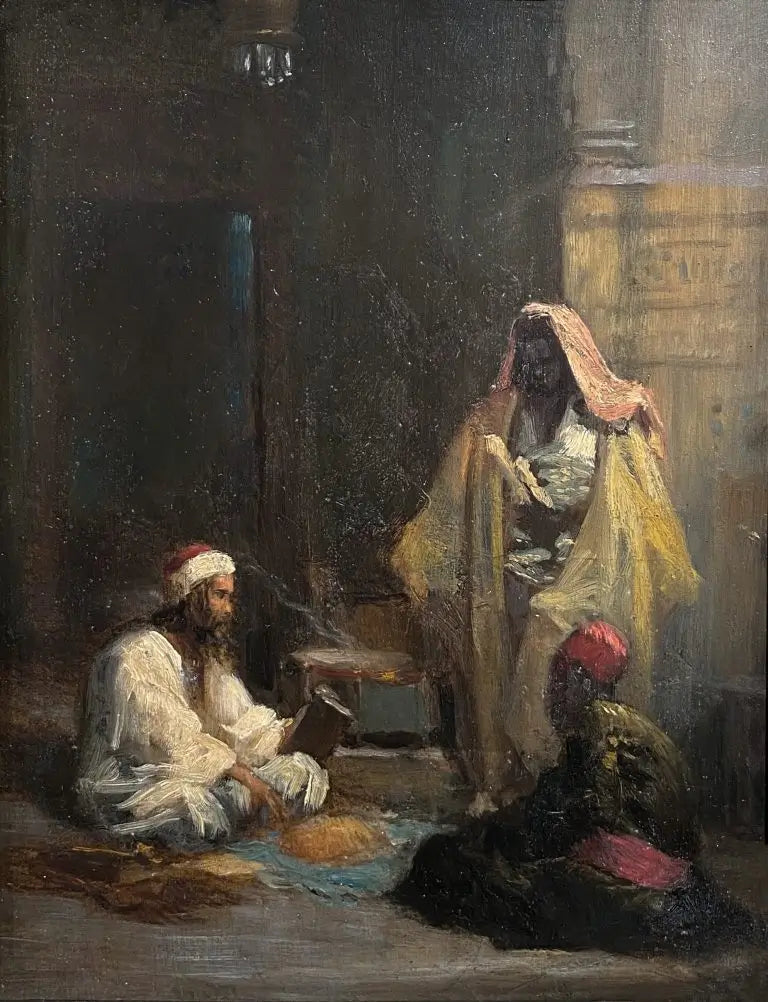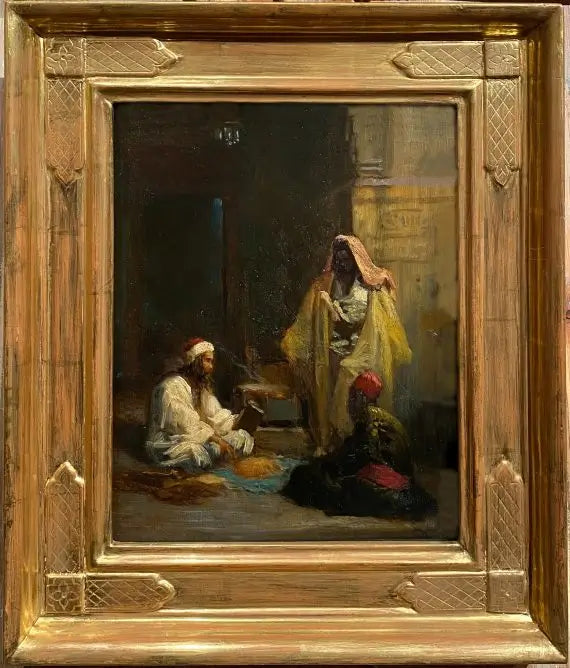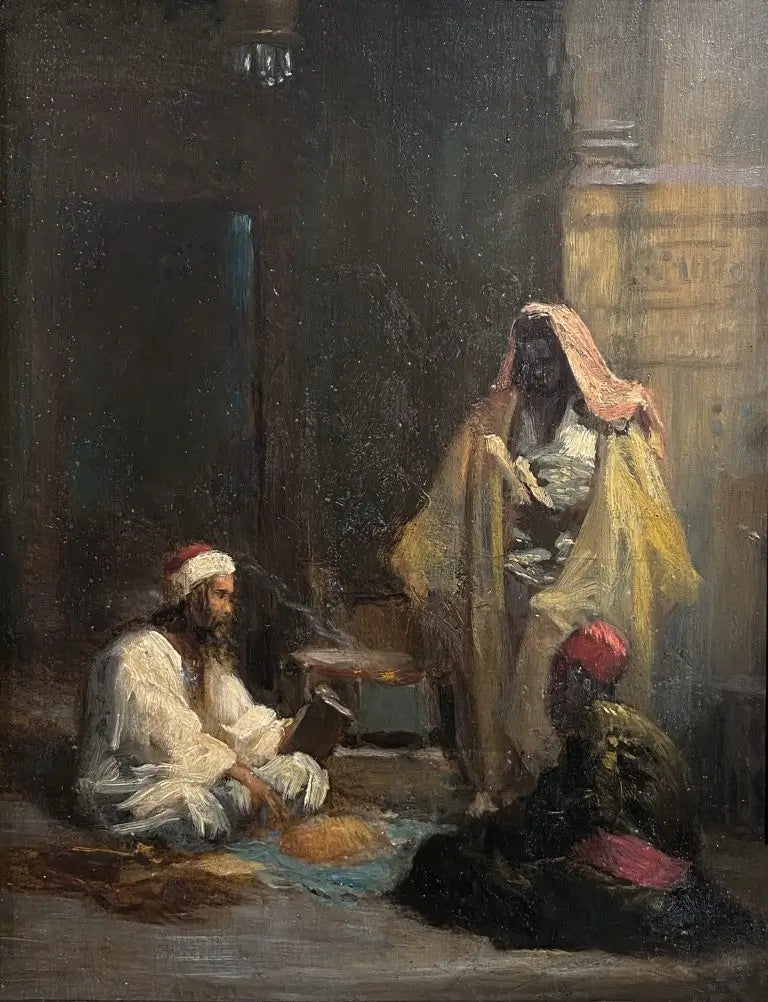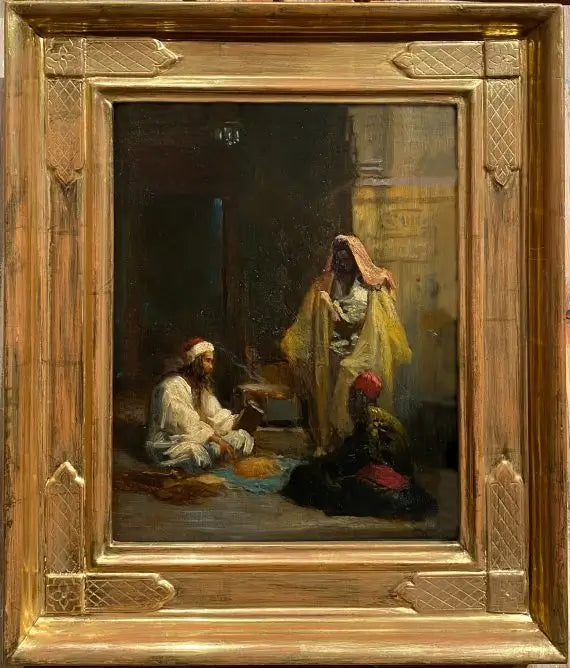

Ludwig Deutsch
The Fortune Teller
Oil on panel
Image size: 10 x 8 inches (25.5 x 20.25 cm)
Ornate Orientalist frame
Ludwig Deutsch
Deutsch’s artistic career began in Vienna in 1872, when he attended the Akademie der Bildenden Künste. He studied with Karl Meyer and, possibly, the history painter Anselm Feuerbach, between 1875 and 1877. The following year, Deutsch arrived in Paris – the centre for both academic and Orientalist studies at the time. Among the Austrian expatriate artists he befriended there were Johann Discart, Arthur von Ferraris, and Rudolf Ernst, with whom he would remain lifelong friends.
A frequent exhibitor at the Paris Salon between 1879 and 1905, Deutsch would eventually maintain two studios, one in Paris and, in his final years, one in the south of France. In early works from this period, the influence of Deutsch’s first Parisian teacher, Jean-Paul Laurens, is evident; indeed, the theatricality and sense of drama that characterize Laurens’ best works were qualities that Deutsch would develop and transform into his own, remarkably modern, signature style.
Though his earliest Orientalist subjects appeared in 1881, Deutsch’s first documented journeys to the Middle East were made in 1885, 1890, and 1898, when he visited Egypt. Numerous awards and honours were bestowed upon him for the works that were produced as a result of these influential travels; these included Gold Medals at the 1892 Salon and the Exposition Universelle in Paris in 1900, and the Chevalier de la Légion d’honneur.
By 1910, Deutsch’s experimentation with a looser, Post-Impressionist style had begun, and his palette had changed and brightened dramatically. He moved away from Paris at this time as well, possibly traveling to North Africa during the political turmoil of the First World War. After 1919, and having gained French citizenship, his works were again shown at the Paris Salon, now – and until his death on 9 April 1935 – under the sobriquet “Louis” Deutsch. Deutsch’s identification with the French Orientalist tradition he had long participated in – and, arguably, nearly monopolised due to the sheer number of successful works he produced – was now, it seems, complete.



